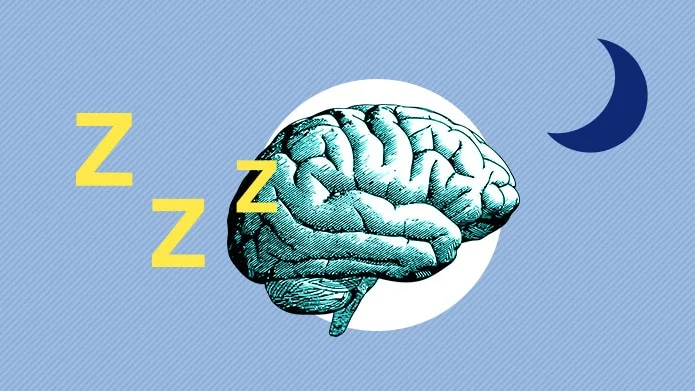
You may have heard of, or even tried, one of my types of “detoxes,” from a juice only diet that claims to rebalance your bowels, to an herbal detox promoting a fresh start. Similarly, scientists have long seen sleep as a sort of “detox” for your brain, a must-have process and time to wash toxins from one of your most vital organs. But, a new study suggests that this theory that has dominated neuroscience might not be the whole story. (1)
Experts reported to the Guardian that it had seemed like a “Nobel-prize winning idea,” and one that “seems to make sense” that your brain would do basic housekeeping while sleeping. (2) But, as it turns out, it’s quite the opposite.
The new 2024 study is changing the way scientists think of restorative sleep. (3) The study identified that the movement of fluid and washing out of toxins is actually reduced during sleep — not increased as previously thought. There was a noted decrease in movement of fluid while under anesthesia as well.
The study, conducted by the UK Dementia Research Institute (UK DRI) at Imperial College London, was recently published in Nature Neuroscience. Researchers used mice to study the effects of sleep on the brain. Using fluorescent dye, they watched to see how quickly the dye made its way through the ventricles of the brain and to other regions of the brain. The rate of the clearance of the dye from the brain was reduced by 30 percent in sleeping mice and 50 percent for mice under anesthesia.
Previously, researchers thought that if you didn’t get enough sleep, you might not be able to clear out toxins effectively. This study’s findings may help researchers better understand the link between sleep and Alzheimer’s risk — and might also help people worried about Alzheimers, who also struggle to sleep, rest a bit easier that those toxins are actually flushed in the daytime.
“The other side to our study is that we have shown that brain clearance is highly efficient during the waking state,” Professor Bill Wisden, co-lead author said in the same Guardian article. “In general, being awake, active and exercising may more efficiently clean the brain of toxins.”
As the authors said in the study, the vulnerability that comes with sleep’s inactivity led to that assumption that sleep must have some benefit to the brain. “However, what this is remains a mystery.” They go on to share that just how toxins are cleared from the brain is “unresolved.” Amidst all the question marks, the back and forth theories beg the question — what are brain toxins doing to us, and are we clearing them effectively?
Some of the chemicals we encounter daily are neurotoxins, such as those in some household cleaners, and alcohol itself — a fact scientists have known for over 50 years, when they learned about delays and brain damage in babies with Fetal Alcohol Syndrome. Concerns about lead date even further back, to ancient Rome, where an engineer noticed concerning fumes. There are lots more questions than answers, though, as scientists continue to find out more about the physiological effects of these toxins.
In the meantime, those who struggle with sleep can focus on the aspects they can control about improving the situation, rather than those they can’t — such as whether their brains are flushing toxins properly.
Sources
1. Komaroff, Anthony L. “Are toxins flushed out of the brain during sleep?” Harvard Health Publishing; https://www.health.harvard.edu/mind-and-mood/are-toxins-flushed-out-of-the-brain-during-sleep; July 1, 2021.
2. Reed, Betsy; “Sleep does not help brain wash out toxins, study suggests,” The Guardian; https://www.theguardian.com/science/article/2024/may/13/sleep-does-not-help-brain-wash-out-toxins-study-suggests; May 13, 2024.
3. Miao, A., Luo, T., Hsieh, B. et al. Brain clearance is reduced during sleep and anesthesia. Nat Neurosci (2024). https://doi.org/10.1038/s41593-024-01638-y

























